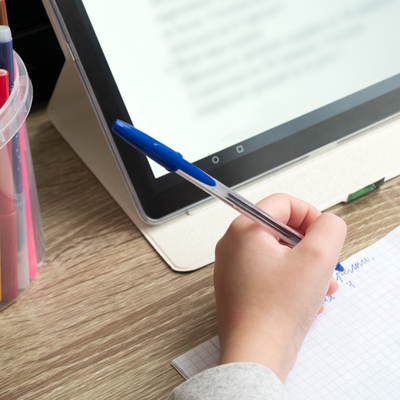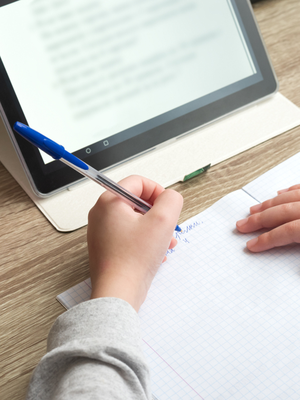

How To Introduce Study Skills
All products on this page have been selected by our editorial team, however we may make commission on some products.
What changes start to take place towards the end of primary school?
“Learning at the end of primary school gently shifts from task-based learning to students perhaps carrying out more research on their own and planning out the content of their projects. There will be revision for SATS, which will be specific for each individual, and so students will need to work to address their own areas for development, too.” – Ryan Lockett, director of studies at TLC LIVE
How can pupils prepare for this?
“Students are encouraged to create revision sheets in a way that are helpful to them – drawing diagrams, colour coding, creating tables etc. This depends on the individual learning style of the learner. Even finding out what type of learner they are can help with the move to secondary school and can help them equip themselves to learn in a new environment.” – Ryan
What can parents do to support them?
“There needs to be good habits at home, like allocating time regularly for homework. The child should also understand how their own brain operates, what the best strategies are for them to learn, what their optimum times are for focused work, and how to feel okay about asking for help.” – Claire Cook, founder of Employability Solutions
Here Are Ryan & Claire’s Five Tips For Developing Better Study Skills…
Prioritise organisation
“Practising good organisational and time management skills will help children feel more willing to carry out their work, so the focus should be on how best to break the task down into manageable chunks. Understanding the importance of planning and preparation in completing tasks and eliminating as much stress as possible is also vital at this stage. During the planning phase, the student should set goals. Once these are reached, they should reflect and re-evaluate.” – Ryan
Learn how to take notes
“Use a video clip, story or newspaper article on something the child is interested in. You might give them an exact target (such as taking no more than ten notes/bullet points) to summarise what information is in the video/text. Make sure the student then verbalises the notes – try and turn them back into full sentences when speaking. Do they know what all their notes meant? Do they make sense?” – Ryan
“Practise condensing paragraphs into a set number of words, skimming and scanning to get the main idea and create visual representations of written ideas. Using highlighters and post it notes to colour code and organise notes into themes – having a notebook rather than pieces of paper reduces the risk of notes being lost.” – Claire
Explore revision techniques
“A timetable is a good idea – not just for getting organised and making sure there’s enough time for revision, but also to include breaks and non-exam related activities. If a student knows there are opportunities not to study, they may be more willing to study at other times. In terms of revision, drawing diagrams and colour coding can really help with visual learners as can sticking labels or notes around the house so the information is seen on a regular basis. Looking at past papers is a necessary part of the revision process, so that students are familiar with the layout and style of questions. They don’t need to be timed or done in test conditions but guidance should be given as to how to unpick the questions and how to answer them.” – Ryan
“Get all the equipment you need from the start – highlighters and annotations, index cards, question and answer flip cards to test yourself. Playing games that reinforce rules or ideas, showing others how to do something (see it, do it, teach it), bringing facts to life with visuals, songs and rhythms can all help the brain to remember. Do encourage breaks, mood boosting exercise and activities, such as plenty of fresh air or something they find fun, like listening to music.” – Claire
Build up research skills
“Encourage children to be creative in where they source their information. They will be very familiar with using the internet, so this doesn’t really develop their research skills. Can they speak to people in their family or local community who could provide them with information about the topic they are looking at? Can they use old newspapers/photos/books from home or the library? It sounds old-school but it will give them a fresh perspective.” – Ryan
Work on time management
“Again, having a timetable will help children see how much time is being spent on studying and how much is being spent on other things. It’s important for them to gain a sense of balance and to understand this balance can be adjusted if they’re finding their overall wellbeing is negatively affected. Little and often can be very helpful, as can coming back and repeating key areas to help it sink in. Breaking work into manageable chunks, planning out what can be achieved and setting small, achievable goals are all key life skills that can be cultivated at this stage.” – Ryan
Visit TLCLive.com & EmployabilitySolutions.com for more information. You can also find out more about Eat The Frog & the Pomodoro technique here & here.
SHOP THE PRODUCT EDIT
DISCLAIMER: We endeavour to always credit the correct original source of every image we use. If you think a credit may be incorrect, please contact us at info@sheerluxe.com.














